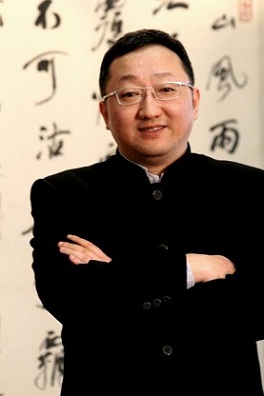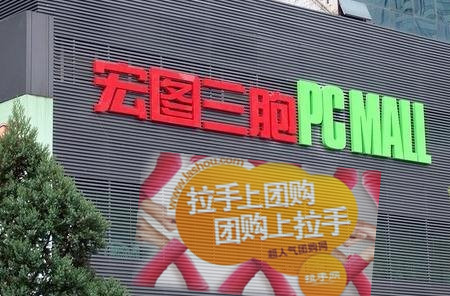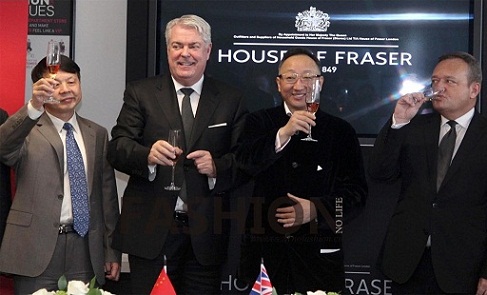The Economic Observer: “Super Buyer” Yuan Yafei’s M&As
Time Published:2014-10-25Source:Author:
Browse:0 Print
Font Size:LargeMediumSmall
Sanpower Group has entered the final stages of signing the buyout agreement with Lashou.com (“lashou” literally means shaking hands). At the same time, the Group and related investors’ funds have been gradually put in place. It costs only a month or so from initial contact to completion of the transaction.
Sanpower is not the only one that has been coveting Lashou.com. It is learned that the HNA Group and Netease have already had long-term and in-depth contacts with Lashou.com. Sanpower simply thwarted all their previous efforts.
And this is only a moderate shot from the “Super Buyer” Yuan Yafei, Chairman of Sanpower Group, which currently ranks 188th among “China’s Top 500 Enterprises”. “Steady, accurate, fast”, is the description labelled on him by the investment and M&A circle.

The Envision of “Lashou.com”
After suffering a toll in its sprint towards IPO, Lashou.com has quickly fallen into oblivion, hardly anticipating another splendour. Therefore, choosing a reliable buyer proves an advisable approach for the previous investors to quit rationally. For the buyer, it has great likelihood of finding a better realisation through harnessing the existing resources of Lashou.com.
Having bought Lashou.com, Yuan Yafei made it clear that he would fully mobilise Sanpower Group’s financial and operational resources to bring about the rapid re-development of the group buying website. Besides, he proposed the brand-new idea of “Five Drives”, namely: the online drives the offline, sales drive delivery, supply chain drives customers, eating & drinking drives merchandise, group buying drives customisation.
According to Yuan’s logic, the group buying website has been finding it hard to pinpoint its profit model, which predicament can be attributed not only to its business model, but also to its resourcing. Currently, Cbanner, the country’s second largest footwear industry, is a Sanpower affiliate. Besides, China’s largest mobile phone sales chain Funtalk, which has over 2,000 stores, and Hisap, which runs more than 600 stores, are also Sanpower’s subsidiary companies. In addition, Sanpower also has the de facto control of Nanjing Cenbest, Orient Department Store, the department store chain House of Fraser (which ranks third in the UK and is recently bought by Sanpower), as well as Brookstone (America’s largest innovative products chain). Its abundant commodity catalogues and complete supply chains will serve as a channel for Lashou.com to carry out its new businesses and pin down new revenue sources. These are the advantages that other group buying websites do not currently have.
As is envisaged by Yuan, it is likely that Lashou.com, while retaining its fundamental group buying business, will hopefully establish itself as the world’s largest O2O e-business platform by combining its online resources with Sanpower Group’s rich offline physical resources. Therefore, Lashou.com should take the lead in domestic A-share listing.
Last week, the meantime the domestic stock market was experiencing a downturn, Sanpower’s two listed companies — Nanjing Cenbest (600682.SH) and Hiteker (600122.SH) — saw their market value ratchet up by several billion yuan. It is manifest that the capital market has sniffed this out.

The M&As and Evolving Logic
In December 2013, Sanpower announced its acquisition of Nanjing International Financial Centre held by Li Jiacheng, with an amount of less than 2 billion yuan.
In January 2014, Sanpower’s bought Mecox Lane, which was listed in the US, at the price of $39 million; in April 2014, Sanpower spent 450 million pounds purchasing “House of Fraser”, a 165-year-old British department store chain, and held 89% of the shares.
In March 2014, Sanpower purchased Israel’s largest pension services provider Natali through its subsidiaries at the price of nearly $100 million; In June, Sanpower, jointly with Sailing Capital International, bought America’s largest innovative products chain Brookstone at the price of over $173 million; In July, Sanpower acquired the nation’s largest mobile phone retail chain Funtalk Telecommunications in cash and stocks.
Yuan Yafei carried out his acquisitions fairly swiftly and through, say, cooperating with investment institutions, cash, share exchange, bond replacement, etc. The local laws of the targets can even be utilised, such as in the case of Brookstone, where Yuan Yafei fully capitalised on the provisions of local laws, forcing the influential and confident local sellers out of the game in the last minute.
In fact, Sanpower’s unremitting generous purchasing is only an epitome of China’s enterprises, who have been aspiring to “step out” with the growth of capital, and have transformed from the initially extensive and massive expansions to the currently rational and in-depth investments. Chinese companies no longer simply focus on resourcing or showcasing their capital strength. Be it Wang Jianlin’s acquiring American cinema, or Yuan Yafei’s buying the British department store, they still base their markets at home in addition to the introduction of foreign advanced business model, management systems, technology, etc.
Chinese enterprises are taking on new patterns, having assets and businesses both at home and abroad. They base their markets inland while making a strong push outward. They’ve inaugurated a new phase of evolution.



